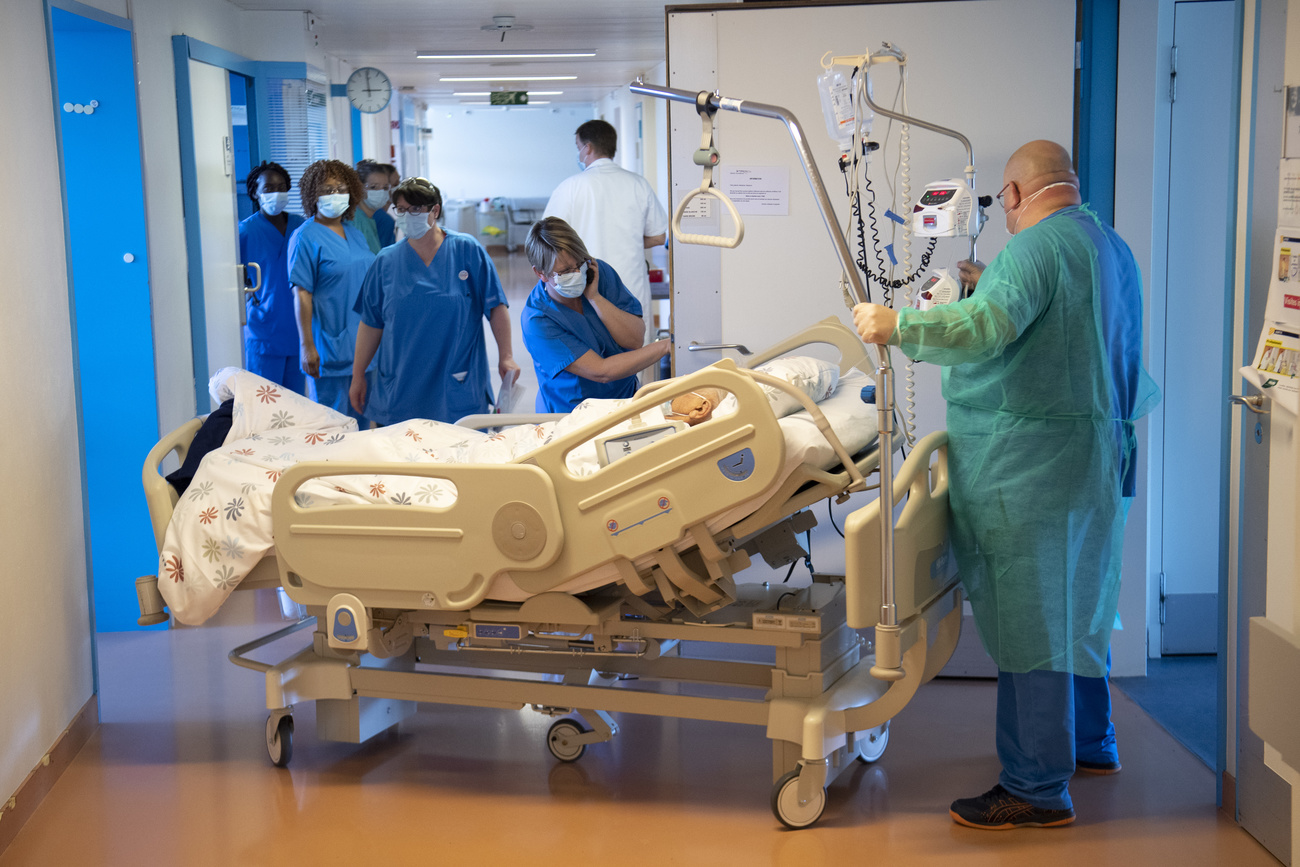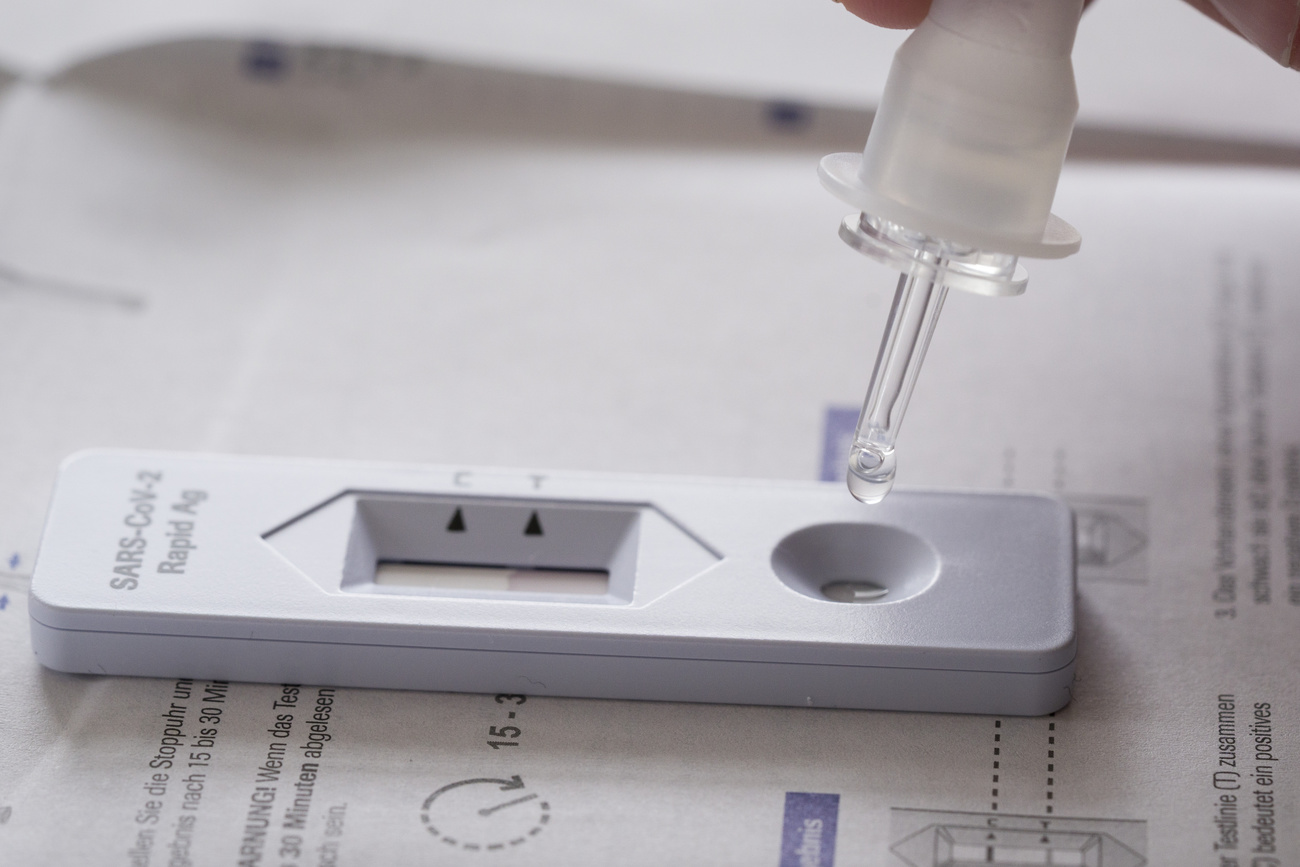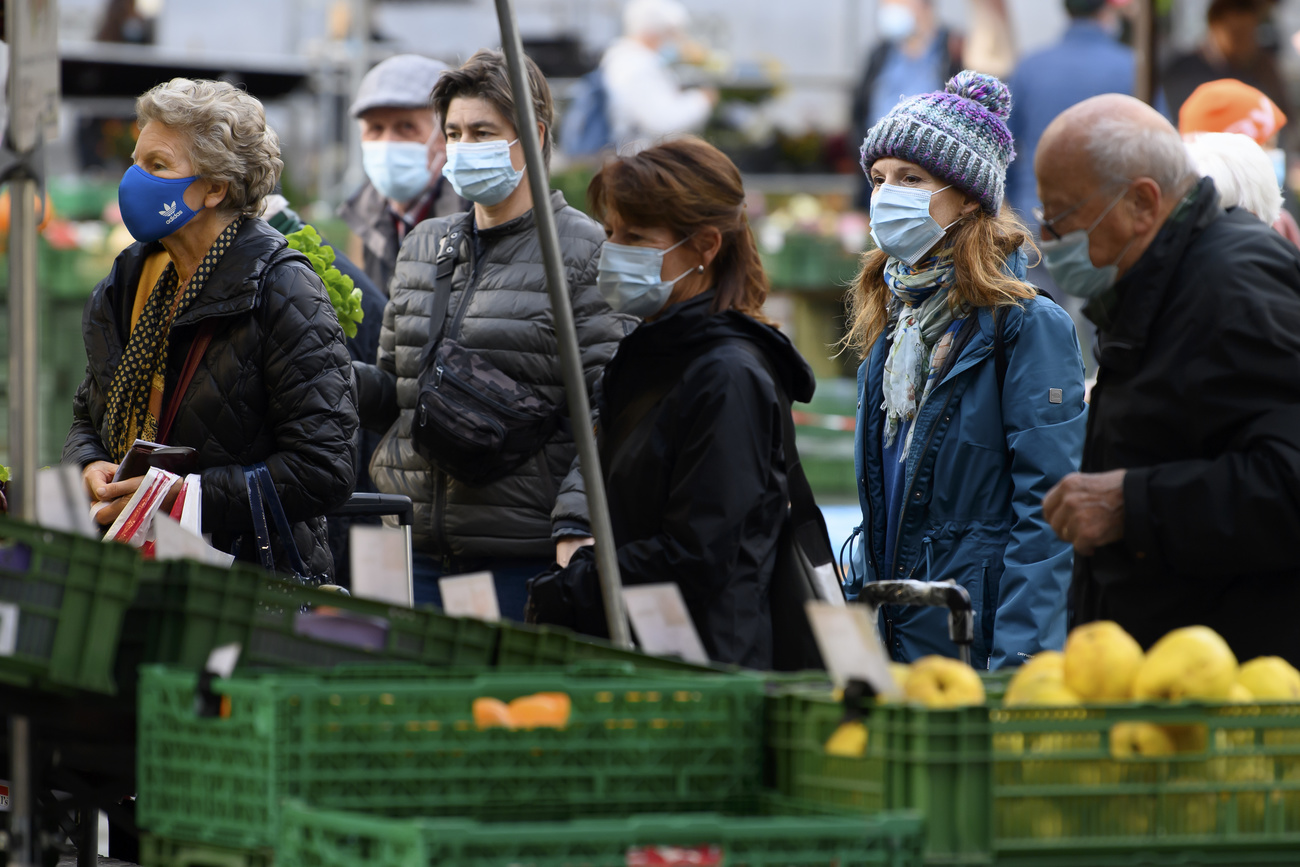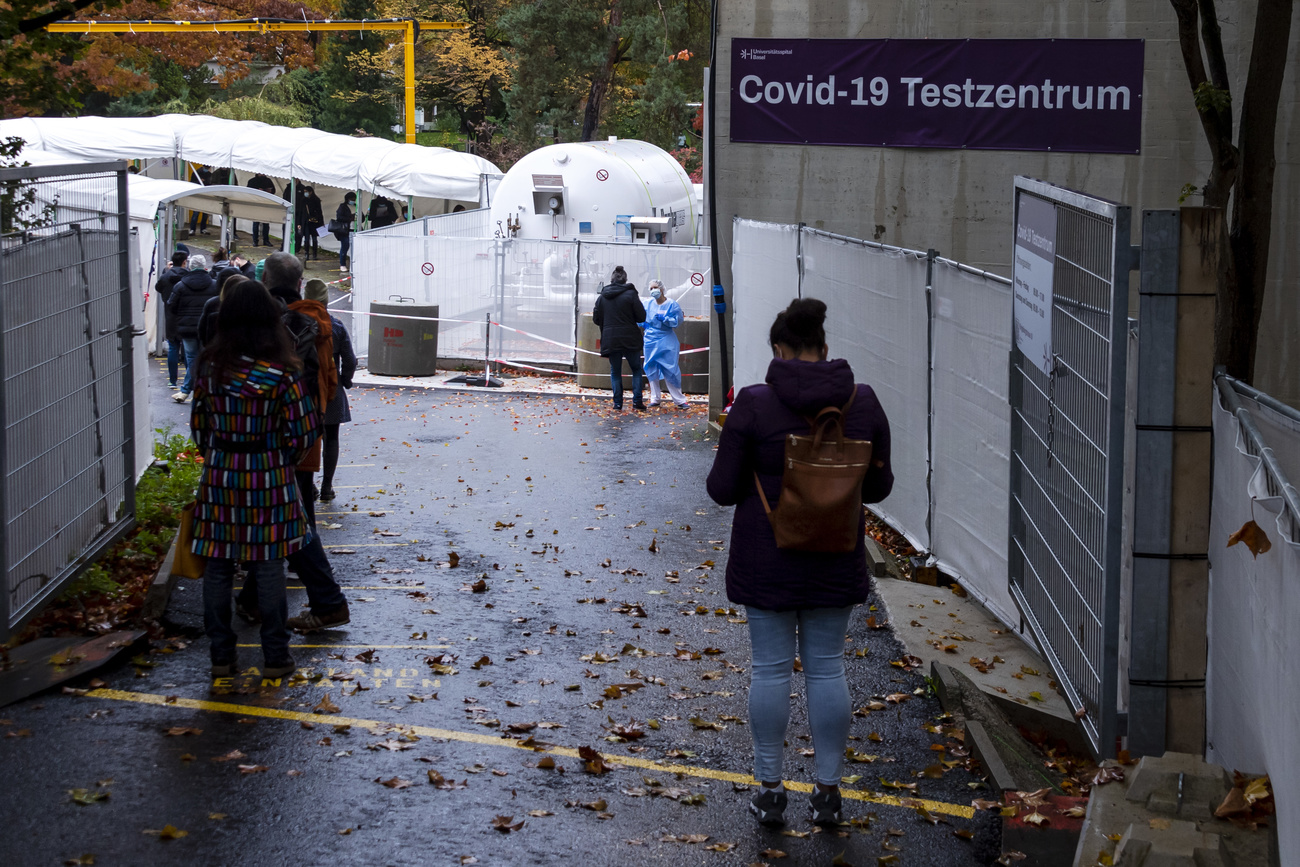Government beefs up support as Swiss Covid cases spike

The government will deploy the army forces to support Swiss hospitals that are struggling to cope with the rising number of patients suffering from coronavirus.
The move comes as the Covid-19 daily infection rate rose above 10,000 on Wednesday.
Interior Minister Alain Berset said the increase in cases had begun to stabilise over the past week, but it was crucial to prevent a collapse of the health system.
“The situation is tense and comparable to the peak during the first wave of infections in spring,” he told a news conference. “We appeal to all the cantons, public hospitals and private clinics to cooperate and suspend non-essential surgeries.”
The spread of the Covid-19 pandemic differs considerably in different regions of the country, and the 26 cantons have wide-ranging autonomy on health issues.
Berset said the nationwide measures taken by the government last week – restricting public and private gatherings, restrictions of opening hours for restaurants and bars and an obligation to wear masks in busy places outdoors – were beginning to show as the curve of new infections seemed to be flattening.
“But it is too early to say whether the trend has changed. We expect to see the cases of hospitalisations to continue to rise over the next ten days.”
Defence Minister Viola Amherd added that up to 2,500 members of the armed forces would be made available for health care and transport services.
The cantonal authorities will be invited to apply for personnel from the army medical corps if civilian staff are no longer sufficient.
Financial support
Faced with growing demands by the business community, notably the travel, hotel and event sectors as well as trade unions, the government also announced a series of programmes to soften the impact of restrictions imposed to halt the spread of Covid-19.
The new measures include extending financial aid to self-employed people and single person companies as well contributing emergency funds to prevent companies from running out of liquidity.
The government also specified regulations for professional sports, notably football and ice-hockey clubs, to apply for interest-free loans to compensate for loss of income.
In March, the government granted up to CHF350 million ($382 million) for 2020 and 2021, but the package was later amended by parliament.
Under the new rules, the funds can be paid out to individual clubs rather than sports leagues.
Up to CHF150 million was earmarked for organisers of non-professional sports suffering from the impact of the Covid-19 crisis.
Meanwhile, the government has agreed to implement a parliamentary decision to extend payments for the self-employed and people with on-call contracts.
They can claim financial compensation for loss of earnings if their businesses, notably in the entertainment sector, were forced to close due to the crisis.
Finance Minister Ueli Maurer said a detailed proposal would be put to consultation but it was not possible to give precise figures at this stage.
Maurer added that CHF200 million from the government would certainly not be enough, but he excluded the option of raising taxes next year.
Several aid programmes worth billions of francs were launched during the first wave of the pandemic earlier this year.

More
Coronavirus: the situation in Switzerland

In compliance with the JTI standards
More: SWI swissinfo.ch certified by the Journalism Trust Initiative


You can find an overview of ongoing debates with our journalists here. Please join us!
If you want to start a conversation about a topic raised in this article or want to report factual errors, email us at english@swissinfo.ch.